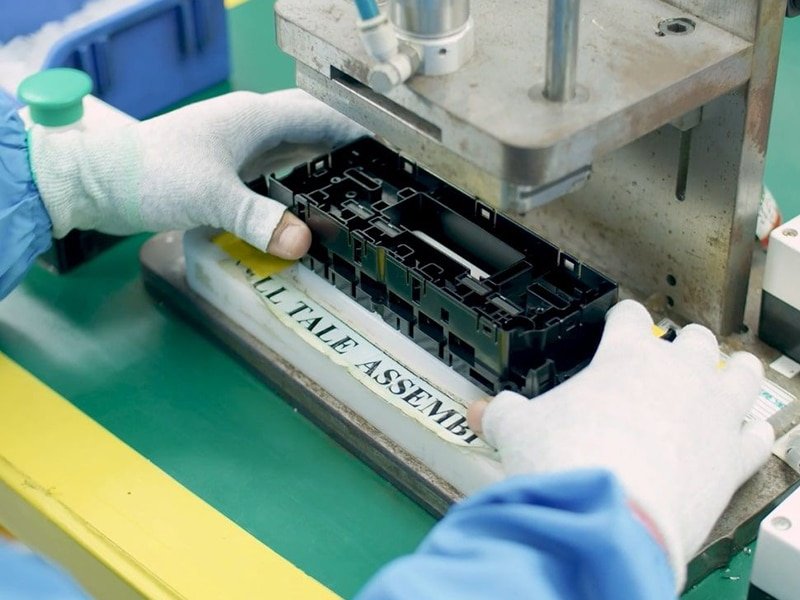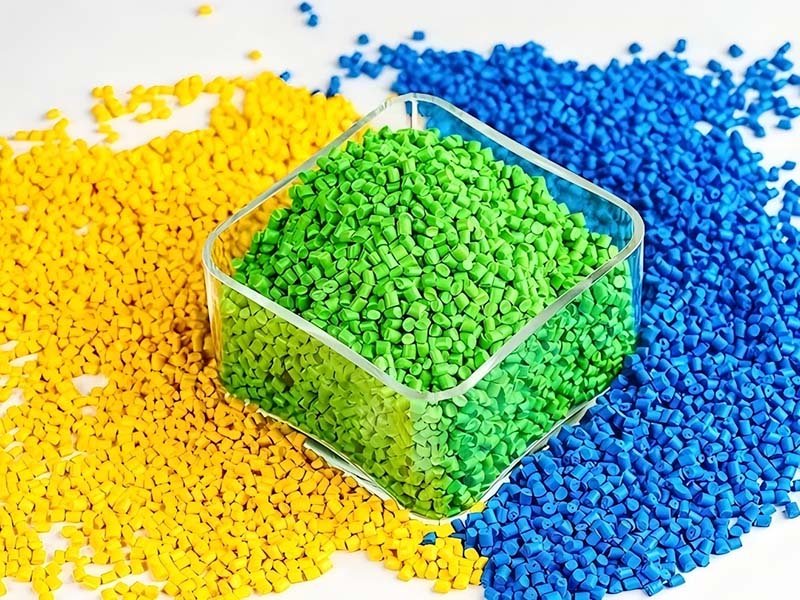Custom PS (Polystyrene) Machining Services

We Provide Polystyrene Machining Services That Fit Your Needs!
Our team is experienced in working with both general-purpose PS and high-impact PS, supporting low-volume runs, functional prototypes, and simple fixtures.
Our in-house CNC equipment, including standard 3-axis mills and 5-axis center, allows us to handle both simple and complex shape parts. Polystyrene is a bit more brittle compared to other engineering plastics, with our experience in handling this material, we know how to reduce chipping and keep the finish clean.- In-house CNC capabilities for consistent precision
- Experience with general-purpose and high-impact PS grades
- Fast quote turnaround and responsive communication
- Support for prototypes, low-volume production, and part validation
What is Polystyrene Machining?
Polystyrene is a lightweight, rigid plastic, it often has a smooth surface finish after machining. It’s relatively easy to machine with the right tools; however, as it’s more brittle than many other engineering plastics, the machining process needs proper fixturing and tool paths to avoid cracking or chipping.
PS machining parts aren’t suited for high-stress or high-temperature environments; they are often used as fixtures, enclosures, packaging components, and visual models.
Machined Polystyrene Grades We Work With
Polystyrene is available in a few standard forms for machining, each with slightly different characteristics depending on the application. While it’s not as widely varied as other engineering plastics, we focus on the grades that machine cleanly and perform reliably for typical use cases.
As a polystyrene machining supplier, we choose the right grade based on the part’s function, surface requirements, and structural needs. Here are the types we commonly work with:
- General-Purpose Polystyrene (GPPS): This is the most common type. It offers good rigidity and machinability, making it ideal for clear or opaque display models, light-duty housings, and components where dimensional accuracy matters more than impact resistance.
- High Impact Polystyrene (HIPS): We choose HIPS for more toughness requirements. The added rubber content makes it less brittle and better suited for structural prototypes, mechanical fixtures, or parts that may face occasional handling stress.
Types of PS Machining We Offer
Machined Polystyrene Properties
Here are the properties that matter the most when machining polystyrene; the data shall change based on PS grade and the adding filler.
| Item | Value |
|---|---|
| Density | ~1.04 g/cm³ |
| Tensile Strength | ~45 MPa |
| Flexural Strength | ~75 MPa |
| Impact Strength (Notched Izod) | ~2–6 kJ/m² (HIPS is higher than GPPS) |
| Heat Deflection Temperature | ~70–85°C |
| Maximum Continuous Use Temp | ~60–70°C |
| Water Absorption (24h) | <0.1% |
-
Key Benefits of Polystyrene Machining
- Polystyrene, especially GPPS (General Purpose Polystyrene), is easy to get clean, smooth finish, which makes it ideal for visible components or cases.
- PS is one of the most affordable thermoplastics, which helps keep both prototyping and production costs down. With its low density, polystyrene is
- With its low density, polystyrene is lightweight making it useful when weight-saving is a priority, especially in packaging and non-load-bearing parts.
- PS has good electical insulation, which offers good dielectic properties, making it an option for low-voltage insulating comoponts.
-
Limitations of Polystyrene Machining
- Polystyrene is brittle in nature so it's tend to crack or chip under stress, especially during high-speed machining or in thin-walled designs.
- With a low melting point (~100°C), PS can deform under frictional heat if not machined carefully. It is not suitable for high-temperature environments.
- Polystyrene has limited chemical resistance, it is sensitive to many solvents, oils, and alcohols, which can cause stress cracking or degradation over time.
- Polystyrene has poor UV resistance, it can get yellowed and become brittle with prolonged UV exposure.
PS Machined Part We’ve Made
- Display Housing
- Spacer
- Protective lense
- Custom enclosure
- Insert
- Insulating plate
Have a Question?
Custom Manufacturing Service for PS Machining
Polystyrene Machining FAQs
Our CNC equipment can hold tight tolerances down to ±0.02 mm on critical features when required.
Yes. Our engineers review your files and suggest adjustments to improve manufacturability, cost and lead time. We can offer DFM report for free.
Yes. We can assemble, test and package machined parts if needed, just as we do for molded components. View our assembly service to learn more.
Yes, we handle many engineering plastics and specialty grades. Tell us your exact material and we’ll confirm feasibility.



